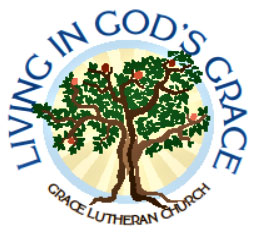I am a big fan of the mainstream media because those outlets demand accountability. Opinion pieces are another matter. Everyone is entitled to their opinions, but sometimes those can really stir things up when they are placed by zealous editors in mainstream publications.
The slow rolling earthquake that has kept the terrain of churchgoing unsettled for nearly two years now was ramped up a seismic notch by an opinion piece published January 30 in the New York Times under the headline “Why Churches Should Drop Their Online Services.” The author, an Anglican pastor, argues that worship must be embodied, and cannot be when actual bodies are not present.
Well, of course, any reasonable person might say. But we pastors and church leaders are dealing with an extraordinary situation here, one that began as weeks stretching into months, then months into years, and now who knows how much longer. In these roller-coaster times we have had to rethink pretty much every assumption about worship on which we were raised: How worship binds us together and strengthens our faith. What it means to experience God’s Word proclaimed. How we receive the sacrament. How or whether we sing. How we pray. How we interact with others. How we survive as the body of Christ when markers which define that body have been stripped away–in-person worship, face to face singing, communion administered from the altar, handshakes and hugs, potlucks and coffee hour.
In times of calamity, people of faith try to ask: What is God calling from us, right here and right now, using all the means at our disposal? Is going backwards, is closing down our middling or mighty online operations, really where the Holy Spirit is leading us? The Spirit’s work is always to shake things up and carve out avenues for new life. “To you all hearts are open,” we sing in the words of an 11th century collect. How can shutting the door in the face of our online community be construed as a sign of openness?
Since March 2020 I have warmed to the idea of online worship with ever-widening eyes toward new possibilities for how to experience Christ in community. We have people who regularly join us for our range of online services, which now include Morning and Night Prayer in addition to Sunday morning. It’s always nice to see them pop in, and the feeling of being connected is tangible. “Hi, I’m here!” says one. “Good to have you!” says another. “Welcome to all those watching online,” I now say. “It is good to be together.”
We come together in a medium that even two years ago I’d never have imagined could be viable. In the early months of the pandemic I could not see endorsing so-called virtual communion, but now here we are encouraging our online viewers to gather the elements at home and share them during our communion liturgy. We are in essence affirming that consecration is effective even through cyberspace. How could it not be, given that it’s a mystery beyond human comprehension to begin with?
This is the landscape we are in. During the week, you can look out the office window onto an empty parking lot, or you can look through the virtual window of midweek online services into the hearts and hopes of a small but possibly growing community of people longing for deeper connection with God’s Word. You can say, “People will find God somehow if they really want to” and leave them dangling as prey for peddlers of the prosperity gospel, or you can offer them the steady invitation to participate in Lutheran liturgical worship grounded solidly in scripture. You can let minds be dulled by Christian pop or crack hearts wide open through the great hymns of faith, ancient and modern. Our online presentation may not offer surround sound, but you can hear the music, follow along with the text, and sing your heart out at home fully unmasked.
No one imagines that virtual worship is a permanent substitute for in-person gathering once pandemic anxiety has subsided. It is always better to be together bodily. But here at Grace we will continue to cultivate our online connections for as long as we discern that they are filling a need. After all, has not Jesus himself told us in Matthew 18:20 that–no matter what or how–he is indeed present? “For where two or three are gathered in my name, I am there among them.”
Thanks be to God for the incomparable gift of God’s Son for us, and with us.
Pastor Nancy Raabe

